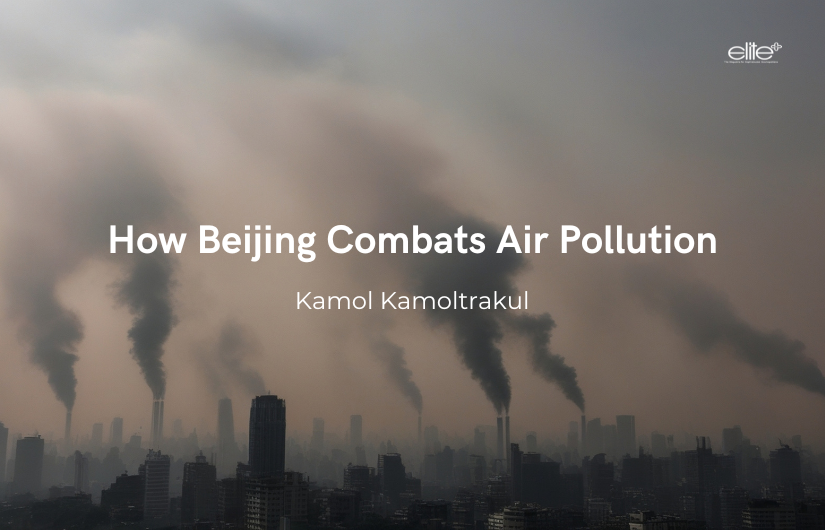The impact of the impending Trump trade war is worrying economists around the world that it will lead to a worldwide recession. The reports and analyses from experts in the media indicate this trend. Recession can lead to jobs loss, wages stagnation, financial hardship, and reduced opportunities to find jobs or get loans.
On 27 March, Reuters reported that US President Donald Trump's announcement of a 25% tariff on automobile and parts imports rippled throughout the world, as global carmakers warned of immediate price hikes, and dealers raised fears of job losses in big auto-exporting countries, many of which are US allies. "The entire automotive industry, global supply chains and companies as well as customers will have to bear the negative consequences," said Germany's Volkswagen CEO.
Starting with tariffs, the trade war is quickly escalating beyond import taxes into a broader tit-for-tat battle. It’s easy to see how this trade war can quickly get out of control. The past few weeks have reminded us that trade is emotional. Countries can take things personally. And there are big personalities involved these days, said Christine McDaniel, a senior research fellow at George Mason University’s Mercatus Center and a former trade official under President George W Bush.
President Trump’s 25% tariffs on Canadian produced products offended leaders there to the point that Ontario fired back. Ontario Premier Doug Ford even threatened to slap a surcharge on or even pull the plug on electricity sent to three US states, raising the specter of power bill spikes or even blackouts.
This angered Trump so much that he briefly vowed to hit all US imports of Canadian steel and aluminum with a 50% tariff. Trump told reporters: “I’m not going to bend at all…” on Canadian aluminum, steel and auto tariffs. His remarks came just hours ahead of a meeting between US and Canadian officials on trade. Trump has so far only implemented a global 25% tariff on steel and aluminum alongside additional levies on China totaling 20% on top of pre-existing tariffs, Reuters reported.
However, the US president has twice suspended 25% duties on most goods coming from Canada and Mexico while also threatening 200% duties on Champagne and wine imports from the European Union. The European Union shot back with retaliatory trade action, imposing new duties on US industrial and farm products. The measures will cover goods from the United States worth some 26 billion euros (USD 28 billion), including textiles, home appliances and agricultural goods. Motorcycles, bourbon, peanut butter and jeans will also be hit, as they were during Trump’s first term.
On the Far East front, in January 2025, Trump announced the reimplementation of tariffs on approximately USD 300 billion worth of Chinese imports that were set to take effect on 1 February, marking a renewed escalation in US-China trade tensions. The administration cited concerns over intellectual property theft, trade imbalances and China’s alleged failure to curb the export of fentanyl into the US as key reasons for reinstating the tariffs. These measures, imposing an added 10% duty on a wide array of goods, including electronics and apparel, sparked significant debate domestically and internationally.
Hence, China quickly responded to Trump’s initial 10% tariff hike by announcing retaliatory tariffs as well as new export controls and by adding Calvin Klein owner PVH Group to a government blacklist. On 10 March, China retaliated against Trump’s tariffs by imposing an additional 15% tax on key American farm products, including chicken, pork, soybeans and beef.
These escalating trade tensions pushed stocks lower as investors worry about the pain Trump’s trade wars risk inflicting on the American economy. The Chinese tariffs were a response to Trump’s decision to double the levy on Chinese imports to 20% on 4 March.
Tariff hikes will result in higher US consumer prices, reduce real wages and increase companies' costs while the surge in policy uncertainty will take a toll on business investment. Retaliation will not only affect US exporters, but also export-oriented global manufacturers in East Asia and Europe.
Economists warn that the tariffs could lead to higher consumer prices and increased costs for US businesses with the risk of more retaliatory actions by China. Peterson Institute for International Economics (PIIE), for instance, states that steep, across-the-board tariffs, like those President Trump is proposing, will prove costly to US consumers and producers. They also feel that the tariffs are unlikely to revive manufacturing, will have little effect on the bilateral trade deficit, will generate minimal revenues, will raise prices and will invite retaliation. Analysts expect US economic growth to ease back to 2% as the tariffs drag down growth and employment, stoke inflation and widen the current account deficit, all amid higher interest rates. A recession, though, is unlikely this year, but may come eventually.
According to research conducted by Mary Amiti of the Federal Reserve Bank of New York and others on trade elasticity, every 1% increase in tariffs corresponds to about a 6% drop in import quantities. With tariffs of 25% on Canada and Mexico and 20% on China, GDP faces a USD 3.5 billion monthly drag, equivalent to 0.14% over 12 months, she said.
We now know that Canada will retaliate with a 25% tariff increase on approximately USD 100 billion worth of US exports. Assuming Mexico does the same and China imposes a similar 10% tariff increase, the deadweight loss could rise to USD 8 billion per month—or 0.36% of GDP over the next 12 months.
Moreover, the drag on GDP would be independent of the tax revenue the US government receives from higher tariffs; in the short term, American consumers will bear the brunt. More important, if the tariffs are sustained, then it is highly probable that the Fed’s rate-cutting campaign has come to an end and that the next move by the Fed would be a rate increase. This would push interest rates at the long end of the curve higher, meaning a 10-year yield in the range of 4.75% and 5%, or higher and mortgage rates moving well above 7%.
Hiring will slow to a range between 50,000 and 100,000 persons per month, but the unemployment rate may not change much because of tighter immigration policies and a quicker pace of deportations.
In addition, the combination of trade taxes and immigration restrictions could lead to a wage price spiral, which would result in rate hikes as the central bank attempts to quash resurgent inflation. If there is no resolution, the impact on the US economy will be significant. Growth will slow notably from the 2.9% average over the past three years as inflation and interest rates rise. The yield on the 10-year Treasury Bond, currently around 4.5%, could climb to a range between 4.75% and 5%.
At stake is about USD 1.323 trillion in trade imports that come from China, Mexico and Canada, accounting for 43% of US imports and 5% of the USD 27 trillion US gross domestic product. That scenario of slowing growth stands in contrast with the current baseline forecast for the US economy, with expected growth of 2.5% this year, accompanied by full employment and inflation between 2.3% and 2.5%. As for Canada and Mexico, a continued standoff on trade will push those economies into recession. The economy of the world will follow because the US is the largest market with the highest purchasing power, Amiti, a researcher of the FED concluded.
Furthermore, JPMorgan's chief economist has forecast the same outlook with a 40% chance of a US recession this year and lasting damage to the country's standing as a reliable investment destination if Trump undermines trust in US governance. A steep US stocks selloff in March has wiped out all of the gains notched by Wall Street following Trump's election.
Hence, the stock market response to President Trump’s tariffs have spooked investors, with fears of an economic downturn driving a stock market sell-off that has wiped out USD 4 trillion from the S&P 500’s peak last month.
Additionally, according to CNN reports in March, America’s economic mood continues to deteriorate as Trump carries on with his sweeping economic agenda. The Conference Board reported last Tuesday that Consumer confidence had slid 7.2 points this month to a reading of 92.9, reaching its lowest level since January 2021 and extending a decline that began in December after the US presidential election. March’s decline was similar to February’s, underscoring the growing pessimism among US consumers.
Moreover, the equity market in Asia has begun to be affected. Taiwan’s Taiex fell 4.4%, led by a more than 6% plunge in semiconductor heavyweight TSMC. Japan’s Topix index was down as much as 2.3%, and Korea’s Kospi fell as much as 2.4%, led by major exporters with exposure to global markets such as electronics manufacturers Samsung and LG and automaker Kia. Thai shares traded below 1,200 points all week in early March. The SET said the exchange has entered a correction phase, having declined 17.9% as of February.
Accordingly, analysts suggest investors make precautionary investments the sooner the better to hedge for the worst to come.















































































































































































































































































































































































































































































































































































































































































































































































































